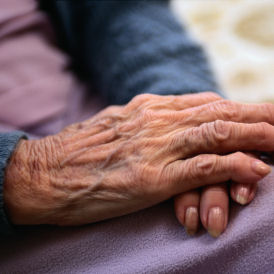Painkillers may ‘aid dementia care’
Agitation, one of the most common dementia symptoms, could be better treated with simple painkillers rather than the riskier antipsychotic drugs often used, a study finds.

Antipsychotic drugs are commonly prescribed to patients in nursing homes whose dementia makes them agitated or aggressive, but a new study, published on the BMJ website, suggests that many of these prescriptions are unnecessary.
Instead, the study suggests, agitated or aggressive dementia patients may simply be expressing pain in the only way they can – and treating this pain would help them.
Finding another way to treat dementia patients with agitation is important, because antipsychotic drugs can be risky. According to a report for the Department of Heath, an estimated 180,000 people with dementia in the UK are prescribed antipsychotics, causing 1,620 excess strokes and 1,800 deaths a year.
Researchers from King’s College London and Norway speculated that pain was the key, and their study of 352 care home residents with moderate to severe dementia appears to have backed up their theory.
Read more: Study reveals undiagnosed dementia rate
Half of the residents were given painkillers, while the rest continued their usual treatment. After eight weeks, there was a 17 per cent reduction in agitation symptoms in the group taking painkillers – a better improvement than if they had been put on antipsychotics.
The authors of the study, including Professor Clive Ballard, Research Director of the Alzheimer’s Society, concluded that “effective management of pain can play an important part in the treatment of agitation and could reduce the number of unnecessary prescriptions for psychotropic drugs” for patients in nursing homes.
But they warned against changing any medication without the supervision of a doctor.